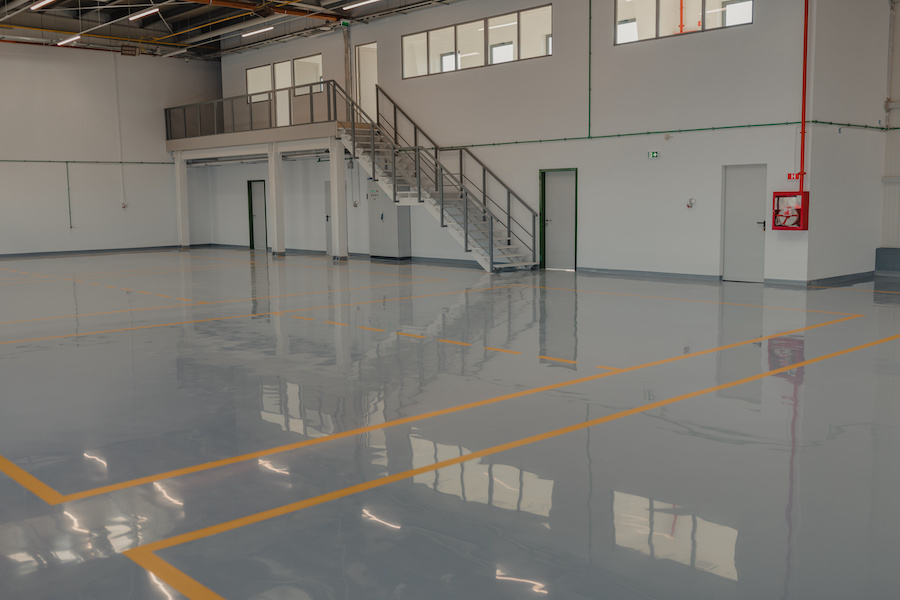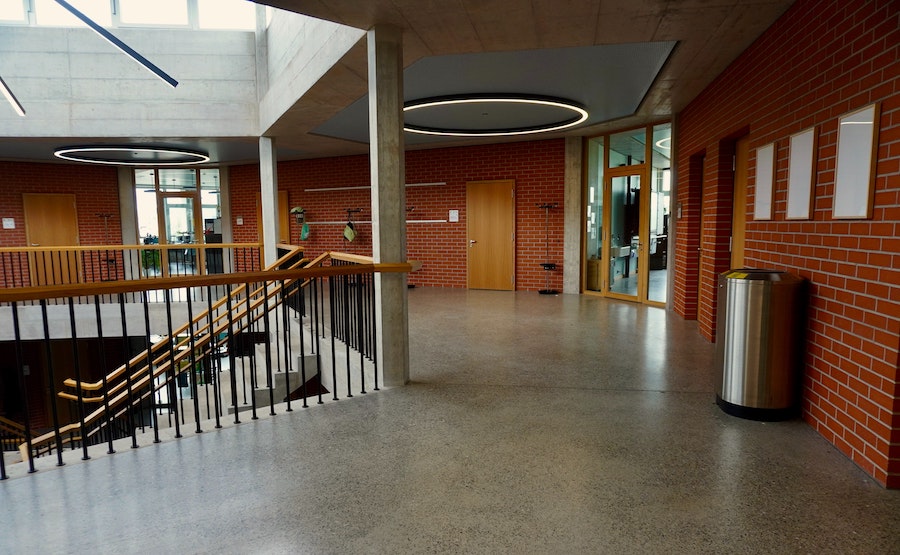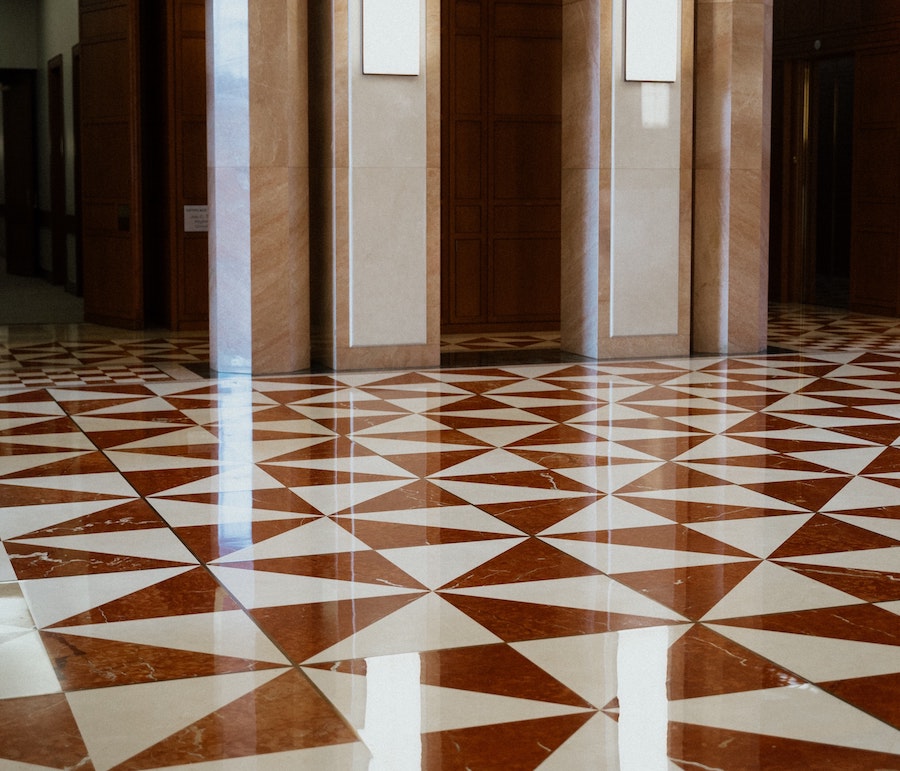Are you in the market for a new flooring option and have been considering polished concrete vs epoxy coatings?
Well, you’re not alone.
These two types of flooring options have become increasingly popular in recent years, and often compared to one another. And while they both offer a modern and sleek look that can enhance any space, they also have their differences.
In this blog post, we’ll take a look at the appearance, durability, functionality, installation process, cost, and more to help you decide which flooring option is best for your project.
Keep reading to learn more.
Polished Concrete vs Epoxy Coatings
Before we begin, it’s importing to note that epoxy is a resin coating that is layered over flooring, whereas polished concrete is the material & coating all in one.
Appearance:
Polished Concrete
Polished concrete is a unique and versatile flooring option that is known for its naturally clean & aesthetic look.
It has a glossy finish that can be customized to your liking, with options ranging from a matte finish to a high-gloss shine. And the beauty of polished concrete? It’s created by grinding and polishing the concrete surface, which exposes the aggregate and creates a unique and stunning look.
Epoxy Coatings

On the other hand, epoxy coatings can mimic the look of other flooring options such as marble, granite, or terrazzo. Not only are they available in a wide range of colors, patterns, and textures, but they can provide a uniform and seamless finish that is perfect for commercial or industrial spaces.
Durability:
Polished Concrete
Both polished concrete and epoxy coatings are incredibly durable options, but polished concrete has a leg up because of its base material: concrete.
Concrete is a very durable material, so it only makes sense that polished concrete can withstand heavy foot traffic and even machinery traffic without showing any signs of wear and tear. Additionally, it is resistant to moisture, stains, and even fire.
Epoxy Coatings
In a similar way, epoxy coatings are extremely durable. They can withstand chemicals, stains, and scratches, as well as heavy loads. This is part of what makes them so perfect for industrial settings. However, epoxy coatings act as a protective coat for the flooring material of your choice, making it slightly less durable than polished concrete.
Functionality:
Polished Concrete

When it comes to functionality, there are plenty of benefits to polished concrete vs epoxy coatings.
Polished concrete has excellent thermal mass, which means it can absorb and retain heat, making it an excellent option for passive solar heating. Additionally, it’s got excellent acoustics, making it a great option for spaces where noise reduction is necessary.
Epoxy Coatings
Epoxy coatings, on the other hand, are known for their slip resistance. Because of this fact, epoxy is ideal for commercial kitchens or wet areas. Not to mention, resistance to chemicals makes epoxy perfect for manufacturing facilities or laboratories.
Because epoxy coatings are also resistant to moisture, they also make a great option for areas such as bathrooms or kitchens.
Installation Process:
Polished Concrete
The installation process for polished concrete and epoxy coatings can vary in terms of time and complexity. Because polished concrete is an entire flooring installation, it requires multiple steps, including grinding, honing, and polishing – which can take a few days.
Additionally, the concrete must cure for at least 28 days before the polishing process can begin.
Epoxy Coatings

However, epoxy coatings are simple additions to flooring materials that already exist. Sure, you’ll need a clean and smooth surface before installation can begin, but the overall process is simpler. It can take a few days to apply a primer, base coat, and top coat, but is generally faster when comparing polished concrete vs epoxy coating.
On average, it takes 7 days for 100% solids epoxy to cure (compared to 28 for polished concrete).
Cost:
When it comes to cost, both of these options are very affordable. Polished concrete pricing can vary depending on factors such as the size of the space and the level of customization, but epoxy coatings are typically more expensive than polished concrete.
That being said, the cost can vary depending on the thickness of the coating and the level of customization.
Which Is Best for You: Polished Concrete vs Epoxy Coatings?
Now that you have a better understanding of the differences between polished concrete vs epoxy coatings, it’s time to decide which flooring option is best for your project.
At Element Contract, we can help you make an informed decision by discussing your needs, budget, and the look you’re trying to achieve. Contact us today to learn more about how we can help you with your flooring needs.
